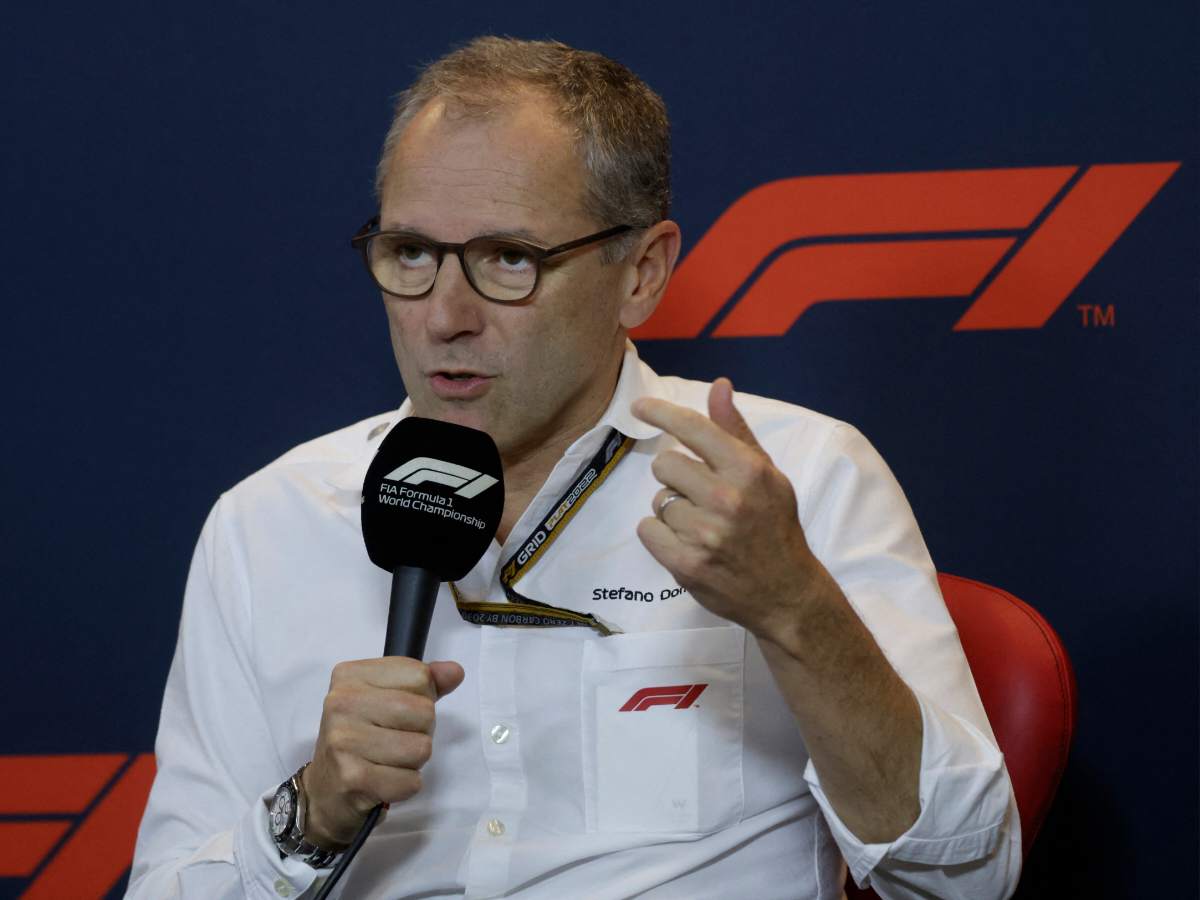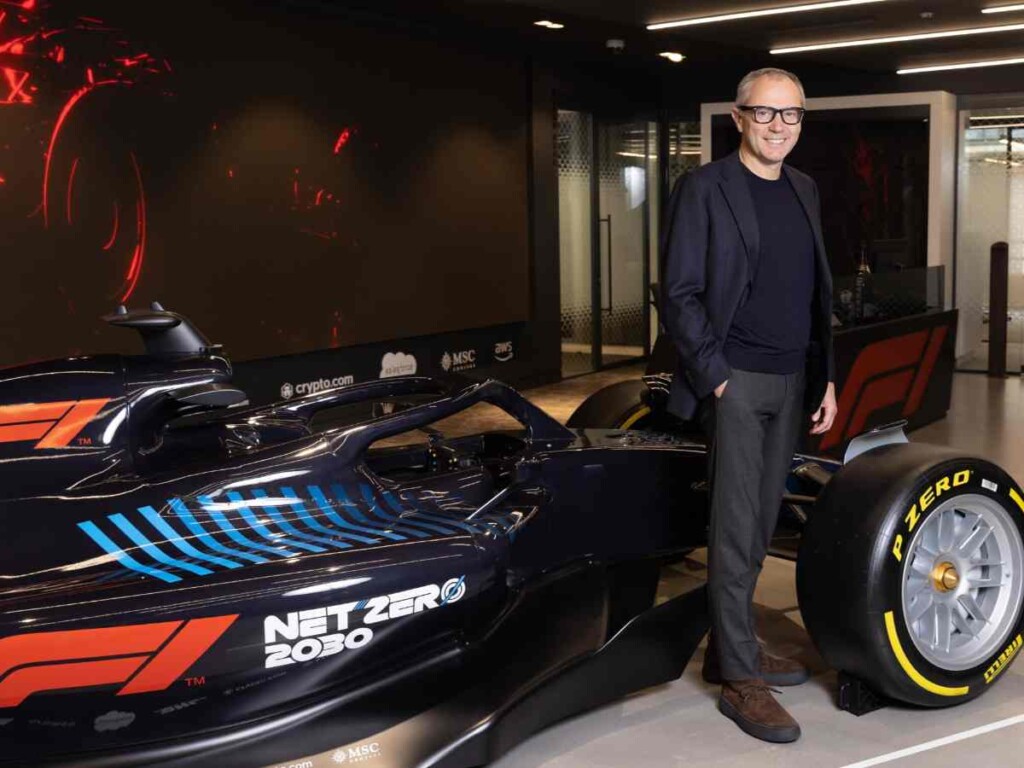Stefano Domenicali drops a major update on the future of F1 engines
Stefano Domenicali promises lighter and sustainable F1 engines that will revive the engine sounds of the past.

Stefano Domenicali (Credits: Reuters)
F1 is gearing up for a technological overhaul, including transitioning to renewable fuels. Stefano Domenicali’s audacious vision foresees a competitive yet environmentally mindful future. He hints that efforts to decrease weight and improve engine sounds will return F1 to its former grandeur. The advent of hybrid V6 1.6L engines in F1 in 2014 muted engine sounds, which Stefano Domenicali wants to restore while focusing on sustainable fuels.
In 2026, F1 will undergo a massive technical overhaul. The upcoming regulations prioritize sustainability and innovation, focusing on sustainable fuels. As Stefano Domenicali stated, “If we can be effective in the study and production of sustainable fuel, we will be able to think about the next generation of power units, focusing on lightness.” These changes are expected to revolutionize the sport and open up new possibilities for power unit design.
Domenicali recognizes the fans’ desire for a competitive engine with an exhilarating sound. The CEO emphasized, “We want a competitive engine, with many horsepower and also with a great sound. 99.9% of people want to hear a Formula 1 sound on track again, and that’s something we’ve put on the table.” Although F1 will rely on the electric side more, they still want to bring back the engine screams.
Discover: Stefano Domenicali makes a HUGE revelation about the 2024 sprint race weekends
Stefano Domenicali believes that sustainable fuels can help to decrease the vehicle weight

Over the years, the weight of F1 cars has increased due to various factors, including the adoption of new technologies and batteries. However, Domenicali believes that sustainable fuels can be a game-changer. He stated, “But I believe if we do a good job with sustainable fuels, we will be able to have simplified engines in a few years with a lower impact on weight.” Suggesting that the advancements in sustainable fuels could potentially lead to lighter engines in the future.
While addressing the weight issue, it is important to acknowledge the significant developments made in terms of safety. Domenicali noted, “Over the years, the weight of the cars has increased, and obviously no one questions what has been done on the safety front.” On the chassis front, FIA has intended to decrease vehicle dimensions and mass management for the F1 cars in 2026.
F1 does not aim to compete directly with the battery world but rather wants to be part of the ongoing transition in the automotive industry. As large manufacturers focus on hybrid and electric technologies, Formula 1 sees itself as a platform that can accelerate the development and adoption of sustainable fuel solutions. The CEO envisions F1 playing a vital role in the broader context of the evolving mobility landscape.
In case you missed it:
- Helmut Marko asks Sergio Perez to ‘forget the World Championship dream’ amidst uncertainty over the Mexican’s Red Bull future
- Mercedes extends George Russell’s contract amidst uncertainty over Lewis Hamilton’s future

